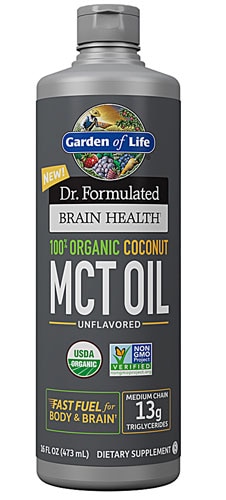The ketogenic diet is one of the most popular diets at the moment, with everyone from celebrities to fitness gurus claiming that it can boost energy levels, fine-tune focus and keep you looking slim. But despite its newfound popularity, the ketogenic diet has an extensive history spanning at least 100 years and is actually rooted in the ancient practice of fasting.
The diet involves severely cutting your carbohydrate intake to push your body into a state of ketosis. Once in ketosis, your body starts burning fat instead of glucose as its primary energy source, which can help to speed up weight loss, balance blood sugar levels and even reduce the risk of heart disease. (1)
There’s a common misconception that ample amounts of bacon and butter are a staple on the ketogenic diet, making it all but impossible for vegans and vegetarians to enjoy. However, following a plant-based ketogenic diet is not only possible, but it can also be incredibly healthy, easy and delicious by making a few simple swaps in your diet.
Ready to learn more? Here’s everything you need to know about switching to a plant-based keto diet, plus how to get started.
Vegan keto diet rules + food list
A plant-based keto diet should be centered around nutritious whole foods such as fruits, vegetables, nuts and seeds. Much like a regular keto diet, the goal is to achieve ketosis by cutting down on carbohydrates, which is why it’s important to opt for non-starchy vegetables and low-sugar fruits while limiting your intake of high-carb foods like grains, legumes, sugars and starches.
Whether you’re following a plant-based ketogenic diet or a regular keto diet, measuring your macronutrient intake is a must to help strike the delicate balance between carb and fat intake and achieve a state of ketosis.
On a standard keto diet, about 75 percent of your total daily calories should come from healthy sources of fat like avocados, coconut oil or olive oil. Meanwhile, about 20 percent of calories should come from protein foods and the remaining 5 percent should come from carbs.
Many people also decide to do a modified keto diet, which is less restrictive and easier to follow while still allowing you to achieve the same results. On a modified keto diet, 40 percent of calories should come from fat and 30 percent should be from protein and carbs, respectively.
Regardless of which route you decide to go, aim for about 30-50 grams of net carbs per day to keep your body in ketosis. Net carbs are calculated by subtracting the grams of fiber from the total grams of carbs. This is important because fiber passes through the gastrointestinal tract undigested, meaning that it doesn’t contribute to your total carb count for the day.
Aside from cutting down on carbs, it’s especially important to fill your diet with nutritious whole foods to maximize your micronutrient intake and squeeze all of the vitamins and minerals that your body needs into your diet. Even if it fits into your daily carb allotment, resist the urge to load up on highly processed, heavily refined junk and fast food, most of which offers little more than extra calories and added sugar. Instead, eat a wide variety of fruits, veggies, protein foods and healthy fats to optimize the health of your diet.
Additionally, keep in mind that quality is just as important as quantity when it comes to the type of fats that you’re eating on the keto diet. Steer clear of highly inflammatory trans fats, fried foods and vegetable oils and instead fill your plate with heart0healthy options like coconut oil, avocados, ghee and olive oil.
Need a bit of help getting started? Print out this handy food list and take it along on your next trip to the grocery store to stock up on some plant-based, keto-friendly foods for your pantry:
Protein Sources:
Natto
Non-starchy vegetables:
Asparagus
Beets
Brussels Sprouts
Cauliflower
Celery
Cucumbers
Eggplant
Leafy Greens
Mushrooms
Onions
Peppers
Tomatoes
Turnips
Low-sugar fruits:
Apples
Cherries
Oranges
Plums
Strawberries
Healthy fats:
Avocados
Coconut oil
Ghee
Grass-fed butter
Olive oil
Conclusion
Following a plant-based keto diet is an easy and effective way to reap the rewards of the ketogenic diet while also limiting your consumption of animal products and upping your intake of healthy whole foods like fruits, veggies, nuts, seeds, healthy fats and proteins.
With the many modifications of the ketogenic diet out there and the wide array of tasty foods to choose from, it’s possible to find a variation that can work for just about anyone. And with a bit of patience and hard work, the plant-based keto diet can be an easy and effective way to lose weight and improve your health.




